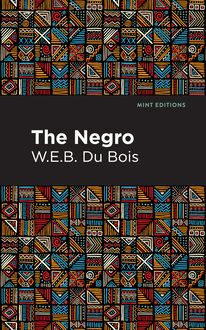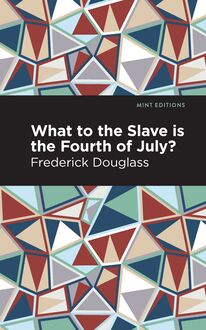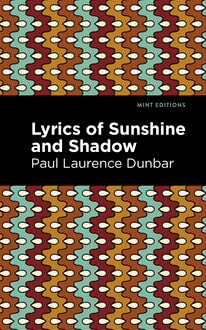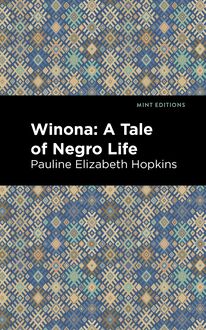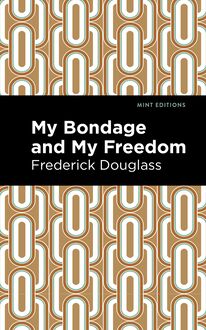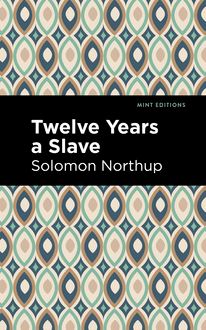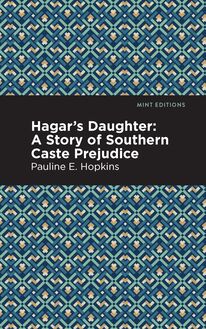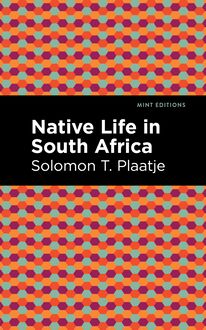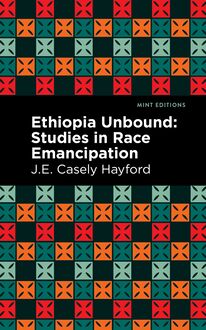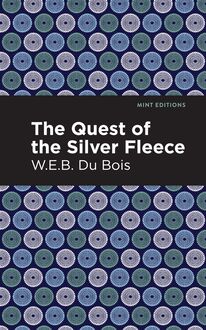-
 Univers
Univers
-
 Ebooks
Ebooks
-
 Livres audio
Livres audio
-
 Presse
Presse
-
 Podcasts
Podcasts
-
 BD
BD
-
 Documents
Documents
-
- Cours
- Révisions
- Ressources pédagogiques
- Sciences de l’éducation
- Manuels scolaires
- Langues
- Travaux de classe
- Annales de BEP
- Etudes supérieures
- Maternelle et primaire
- Fiches de lecture
- Orientation scolaire
- Méthodologie
- Corrigés de devoir
- Annales d’examens et concours
- Annales du bac
- Annales du brevet
- Rapports de stage
La lecture à portée de main
Vous pourrez modifier la taille du texte de cet ouvrage
Découvre YouScribe en t'inscrivant gratuitement
Je m'inscrisDécouvre YouScribe en t'inscrivant gratuitement
Je m'inscrisEn savoir plus
Vous pourrez modifier la taille du texte de cet ouvrage
En savoir plus

Description
From the Darkness Cometh the Light (1891) is a memoir by Lucy A. Delaney. Published in St. Louis in the last year of Delaney’s life, the work is regarded as an essential slave narrative and the only firsthand account of a freedom suit, by which some enslaved African Americans were able to achieve their freedom prior to emancipation. Twentieth century scholars of feminism and African American literature in particular have upheld her work and continue to celebrate her influence on the historical and cultural development of the nation. “On a dismal night in the month of September, Polly, with four other colored persons, were kidnapped, and, after being securely bound and gagged, were put into a skiff and carried across the Mississippi River to the city of St. Louis. Shortly after, these unfortunate negroes were taken up the Missouri River and sold into slavery.” Tracing her mother’s life back to this tragic event, Lucy A. Delaney tells a story of enslavement, hardship, and perseverance, the story of her family’s struggle for freedom. As a young woman, Polly brought two lawsuits to court in St. Louis in the hopes of freeing herself and her daughter from slavery. Following their historic victory, mother and daughter remained together as Lucy attempted to start a family of her own. Despite losing her first husband and several children from her second marriage, Lucy remained dedicated to serving God and her community as a leader in her church and president of several organizations for the empowerment of African American women. With a beautifully designed cover and professionally typeset manuscript, this edition of Lucy Delaney’s From the Darkness Cometh the Light is a classic of African American literature reimagined for modern readers.
Sujets
Informations
| Publié par | Mint Editions |
| Date de parution | 12 octobre 2021 |
| Nombre de lectures | 0 |
| EAN13 | 9781513221540 |
| Langue | English |
| Poids de l'ouvrage | 2 Mo |
Informations légales : prix de location à la page 0,0250€. Cette information est donnée uniquement à titre indicatif conformément à la législation en vigueur.
Extrait
From the Darkness Cometh the Light
Or, Struggles for Freedom
Lucy A. Delaney
From the Darkness Cometh the Light: Or, Struggles for Freedom was first published in 1891.
This edition published by Mint Editions 2021.
ISBN 9781513223049 | E-ISBN 9781513221540
Published by Mint Editions®
minteditionbooks.com
Publishing Director: Jennifer Newens
Design & Production: Rachel Lopez Metzger
Project Manager: Micaela Clark
Typesetting: Westchester Publishing Services
C ONTENTS I II III IV V VI VII
I
“Soon is the echo and the shadow o’er,
Soon, soon we lie with lid-encumbered eyes
And the great fabrics that we reared before
Crumble to make a dust to hide who dies.”
I n the year 18—, Mr. and Mrs. John Woods and Mr. and Mrs. Andrew Posey lived as one family in the State of Illinois. Living with Mrs. Posey was a little negro girl, named Polly Crocket, who had made it her home there, in peace and happiness, for five years. On a dismal night in the month of September, Polly, with four other colored persons, were kidnapped, and, after being securely bound and gagged, were put into a skiff and carried across the Mississippi River to the city of St. Louis. Shortly after, these unfortunate negroes were taken up the Missouri River and sold into slavery. Polly was purchased by a farmer, Thomas Botts, with whom she resided for a year, when, overtaken by business reverses, he was obliged to sell all he possessed, including his negroes.
Among those present on the day set apart for the sale was Major Taylor Berry, a wealthy gentleman who had travelled a long distance for the purpose of purchasing a servant girl for his wife. As was the custom, all the negroes were brought out and placed in a line, so that the buyers could examine their good points at leisure. Major Berry was immediately attracted by the bright and alert appearance of Polly, and at once negotiated with the trader, paid the price agreed upon, and started for home to present his wife with this flesh and blood commodity, which money could so easily procure in our vaunted land of freedom.
Mrs. Fanny Berry was highly pleased with Polly’s manner and appearance, and concluded to make a seamstress of her. Major Berry had a mulatto servant, who was as handsome as an Apollo, and when he and Polly met each other, day after day, the natural result followed, and in a short time, with the full consent of Major Berry and his wife, were married. Two children were the fruit of this marriage, my sister Nancy and myself, Lucy A. Delaney.
While living in Franklin county, Major Berry became involved in a quarrel with some gentleman, and a duel was resorted to, to settle the difficulty and avenge some fancied insult. The major arranged his affairs and made his will, leaving his negroes to his wife during her life-time and at her death they were to be free; this was his expressed wish.
My father accompanied Major Berry to New Madrid, where the fatal duel was fought, and stayed by him until the end came, received his last sigh, his last words, and closed his dying eyes, and afterwards conveyed the remains of his best friend to the bereaved family with a sad heart. Though sympathizing deeply with them in their affliction, my father was much disturbed as to what disposition would be made of him, and after Major Berry was consigned with loving hands to his last resting place, these haunting thoughts obtruded, even in his sleeping hours.
A few years after, Major Berry’s widow married Robert Wash, an eminent lawyer, who afterwards became Judge of the Supreme Court. One child was born to them, who, when she grew to womanhood, became Mrs. Francis W. Goode, whom I shall always hold in grateful remembrance as long as life lasts, and God bless her in her old age, is my fervent prayer for her kindness to me, a poor little slave girl!
We lived in the old “Wash” mansion sometime after the marriage of the Judge, until their daughter Frances was born. How well I remember those happy days! Slavery had no horror then for me, as I played about the place, with the same joyful freedom as the little white children. With mother, father and sister, a pleasant home and surroundings, what happier child than I!
As I carelessly played away the hours, mother’s smiles would fade away, and her brow contract into a heavy frown. I wondered much thereat, but the time came—ah! only too soon, when I learned the secret of her ever-changing face!
II
M rs. Wash lost her health, and, on the advice of a physician, went to Pensacola, Florida, accompanied by my mother. There she died, and her body was brought back to St. Louis and there interred. After Mrs. Wash’s death, the troubles of my parents and their children may be said to have really commenced.
-
 Univers
Univers
-
 Ebooks
Ebooks
-
 Livres audio
Livres audio
-
 Presse
Presse
-
 Podcasts
Podcasts
-
 BD
BD
-
 Documents
Documents
-
Jeunesse
-
Littérature
-
Ressources professionnelles
-
Santé et bien-être
-
Savoirs
-
Education
-
Loisirs et hobbies
-
Art, musique et cinéma
-
Actualité et débat de société
-
Jeunesse
-
Littérature
-
Ressources professionnelles
-
Santé et bien-être
-
Savoirs
-
Education
-
Loisirs et hobbies
-
Art, musique et cinéma
-
Actualité et débat de société
-
Actualités
-
Lifestyle
-
Presse jeunesse
-
Presse professionnelle
-
Pratique
-
Presse sportive
-
Presse internationale
-
Culture & Médias
-
Action et Aventures
-
Science-fiction et Fantasy
-
Société
-
Jeunesse
-
Littérature
-
Ressources professionnelles
-
Santé et bien-être
-
Savoirs
-
Education
-
Loisirs et hobbies
-
Art, musique et cinéma
-
Actualité et débat de société
- Cours
- Révisions
- Ressources pédagogiques
- Sciences de l’éducation
- Manuels scolaires
- Langues
- Travaux de classe
- Annales de BEP
- Etudes supérieures
- Maternelle et primaire
- Fiches de lecture
- Orientation scolaire
- Méthodologie
- Corrigés de devoir
- Annales d’examens et concours
- Annales du bac
- Annales du brevet
- Rapports de stage
